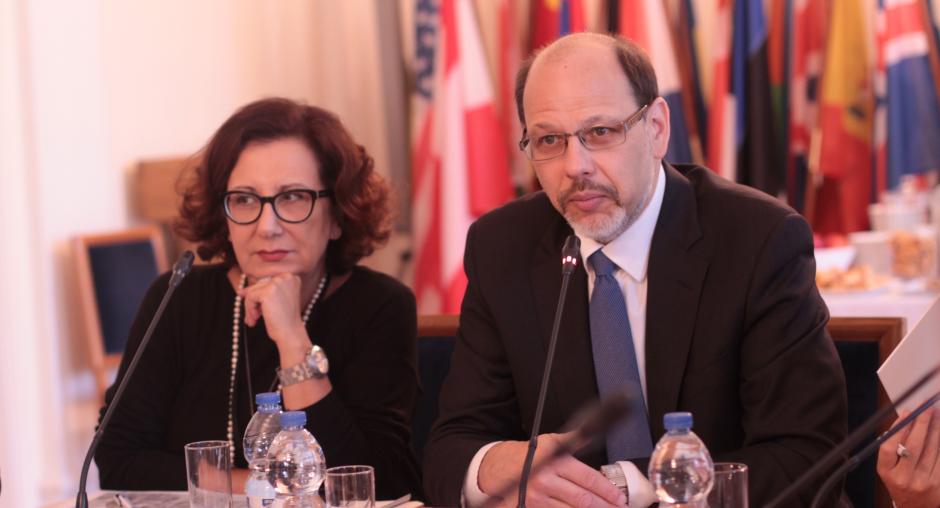Prevention of sexual and gender-based violence in criminal justice facilities discussed at OSCE/ODIHR expert meeting in Warsaw

Challenges and good practices in preventing sexual and gender-based violence in criminal justice facilities were the focus of a two-day meeting of practitioners in the OSCE region on 17 and 18 October 2016 in Warsaw. The event was organized by the OSCE Office for Democratic Institutions and Human Rights (ODIHR) and gathered over 20 experts from criminal justice systems, ombuds institutions and civil society.
“Sexual assault and rape are underreported crimes in the general community, and even more so behind bars,” said Howard Sapers, the Correctional Investigator of Canada, elaborating on the need to improve monitoring mechanisms at closed facilities. “All states have a duty of care to protect persons deprived of their liberty from sexual violence. Those detained are not stripped of their human rights and those charged with their custody must be guided by the rule of law.”
Participants illustrated different paths to preventing sexual and gender-based violence in temporary detention and correctional facilities, sharing lessons learned to address various vulnerabilities.
“Little attention is generally devoted to factors affecting both men and women who are deprived of their liberty, such as the nature of their offence, criminal history and incarceration experience, as well as the dynamics of power and dominance at play in jails and prisons,” said Graziella Pavone, ODIHR Human Rights Officer. “The latter, coupled with factors such as ethnicity, age, nationality, religion, gender, sexual orientation or disability, affects the vulnerability of both men and women to violence and abuse in detention. This expert meeting is a first attempt to identify good practices that could be applied in different national contexts.”
Accountability measures and protection mechanisms for men and women deprived of their liberty were also discussed.
“We welcome OSCE/ODIHR’s initiative to raise and address the issue of sexual and gender-based violence in closed facilities and to map good practices of prevention and protection at the regional level,” said Azamat Shambilov, Director of the Central Asia Office of Penal Reform International (PRI).
Prior to the event, a survey was conducted among OSCE participating States to identify a baseline for mapping good practices in the field. The results of the expert meeting will be part of a compendium of good practices to be published in 2017 and of capacity building tools for penitentiary staff and oversight bodies.
